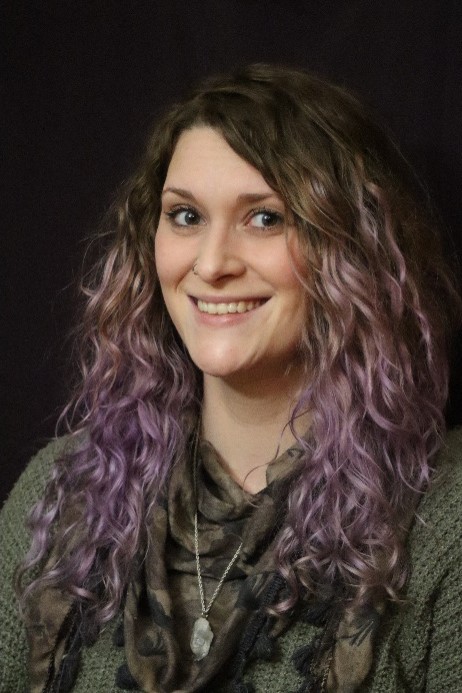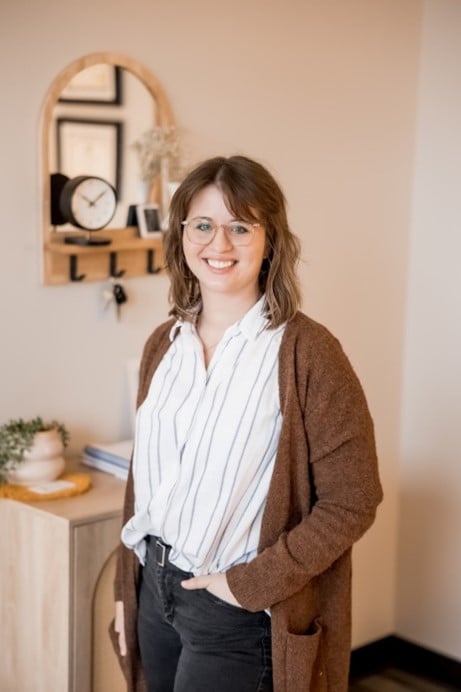Responding to Domestic Violence as a Mental Health Professional
Thursday, May 15, 2025
10:30 AM - 3:45 PM
Online via Zoom
Join the Blue Cross® and Blue Shield® of Minnesota Center for Rural Behavioral Health to learn foundational knowledge and practical skills to effectively address domestic violence.
Cost: $65
Earn 4.5 CEUs!
CEUs pre-approved by the Minnesota Board of Social Work and the National Board of Certified Counselors (NBCC).
Counseling and Student Personnel has been approved by NBCC as an Approved Continuing Education Provider, ACEP No. 4558.

Morning Session | 10:30 a.m. - 12:00 p.m.
This session will provide participants with a comprehensive understanding of domestic violence. Topics include key definitions, warning signs, prevalence statistics, impacts and societal causes of violence.
- Define domestic violence and sexual assault and recognize their warning signs.
- Evaluate the impacts of DV and SA on victims, perpetrators, children, and society.
- Analyze the societal and cultural factors that contribute to domestic and sexual violence.
Afternoon Session One | 12:30 p.m. - 2:00 p.m.
This session focuses on providing practical tools and strategies for supporting individuals that have been harmed by domestic violence. Topics include how to start a conversation about violence, empowerment techniques, and effective strategies to help victims and survivors cope with their trauma.
- Identify effective strategies for conducting supportive conversations with individuals when signs of abuse are observed or abuse is disclosed.
- Explore key treatment areas and tools for working with survivors.
- Apply knowledge of advocacy services to support survivors and connect them to appropriate interventions.
Afternoon Session Two | 2:15 p.m. - 3:45 p.m.
This session focuses on providing practical tools and strategies for supporting individuals that have caused harm by engaging in domestic violence. Topics include motivations of those that use abuse, key intervention areas for those that use violence, and strategies for maintaining a trauma informed and survivor-centered approach to working with those that engage in violence.
- Understand the different reasons people engage in abusive behavior in intimate relationships.
- Explore key treatment areas and tools for working with individuals that use domestic violence.
- Identify strategies for centering survivor experiences and implementing a trauma informed approach while maintaining accountability for abusive behavior.
Meet Your Speakers:

Julia Hamann, BSW, LSW is the Director of Community Programming for CADA, a non-profit organization in South Central MN with the mission of serving victims and survivors of domestic and sexual violence through education, advocacy, and shelter. In her current role Julia oversees program development for the Keep Me Safe Supervised Parenting Time & Exchange Center (KMS), and the Community Education program at CADA. Julia has 9 years of experience working with both those experiencing gender-based violence and those that have engaged in violence in a variety of settings. Prior positions include work as a Shelter Advocate, Community Advocate, and Program Manager for KMS & the Southern MN Offender Education Program Manager.

Laura Schultz, MSW, LICSW works as a Licensed Independent Clinical Social Worker at Mental Health Collaborative of Mankato (MHCM). Laura works primarily with adults through an integrative, intersectional, trauma-responsive, feminist lens. Laura specializes in working with individuals who have survived and experienced intimate partner and sexual violence. Laura also works specifically with individuals exploring identity development (which may include sexual orientation, gender identity, racial/ethnic identity, and religious/spiritual identity). When employing traditional talk therapy, Laura frequently uses interventions of mindful self-compassion, motivational interviewing, and client-centered therapy.
Many individuals with whom Laura works are looking for relief from traumatic experiences. In service of supporting healing from these events, Laura has completed training in Eye Movement Desensitization and Reprocessing (EMDR) as well as Transforming Touch (TT). Additionally, as a creative person herself, Laura is passionate about employing visual art, music, and other creative processes when appropriate to explore and make meaning of both challenging and affirming experiences.
Prior to her time at MHCM, Laura worked as the Director of the Violence Awareness & Response Program at MNSU, Mankato for ten years. Laura received her Master of Arts in Gender & Women’s Studies in 2011 and her Master of Social Work in 2019 from MNSU, Mankato. She loves to read, play music, spend time near water, and laugh with friends.
Not able to attend May 15th?No problem. Register for the recorded session and a link to view it will be emailed to you after the May 15th training.
Registration Questions: Email workforce@mnsu.edu or call 507-389-1094
Training Questions: Email elizabeth.harstad.3@mnsu.edu
Center for Workforce Professional Education
workforce@mnsu.edu


